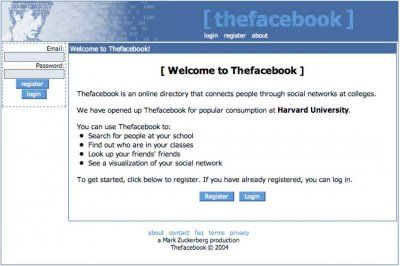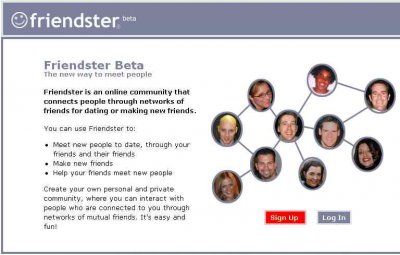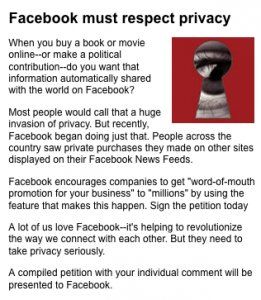The 13 Secrets To Facebook's Success (转)
Henry Blodget | May 17, 2012, 11:31 AMRead more: http://www.businessinsider.com/secrets-to-facebooks-success-2012-5?op=1#ixzz1vOat0585
Eight years ago, Facebook was a coding project in Mark Zuckerberg's dorm room.
Now its a global business with $4 billion of revenue that is used by 1/8th of the world's population. And it's worth more than $100 billion.
When Facebook started, there were dozens of other social networks going after the same opportunity.
Facebook won. They lost.
Here are some reasons why--reasons that apply to almost every business.
1. Move fast. 快速行动/推进
He didn't write a business plan.
He didn't endlessly ask friends and advisors what they thought of the idea.
He didn't "research the market," apply for patents or trademarks, assemble focus groups, or do any of the other things that entrepreneurs are supposed to do.
He just built a cool product quickly and launched it.
And Facebook was born.
2. Remember that ideas are a dime a dozen--it's all about execution. 有了想法, 还需要执行
Two Harvard seniors, the Winklevosses, said it was their idea--that Mark Zuckerberg had "stolen it."
This led to a legal fight that has lasted for nearly a decade.
Meanwhile, outside the clubby world of Harvard, there were dozens of other entrepreneurs who had similar ideas. And lots of them launched those ideas. But, today, there's only one Facebook.
Why?
Because ideas are a dime a dozen.
What matters is making them happen.
As the fictional Mark Zuckerberg told the fictional Winklevoss brothers in the movie: "If you had invented Facebook, you would have invented Facebook."
Don't waste time congratulating yourself for having a good idea. Just go make it happen.
3. Keep it simple (don't overbuild). 保持简单(不要过度建设)
Or they take so long to develop their products that by the time they come out, they have already been leapfrogged.
The first version of the "thefacebook" was very simple. It did one thing well.
Then Zuckerberg and the Facebook team improved it over time. And, each time, they made sure that the service was still easy to use.
(Okay, the privacy controls are ludicrously complex, but no one pays attention to those).
4. Figure out what will kill you... and make sure it doesn't. 找出哪些是可能的致命点, 并预防
There were several other college networks in existence before Facebook launched in 2004, including at Columbia and Stanford.
(The latter, called Club Nexus, had been around since 2001. But, in violation of Facebook Success Secret No. 3, it was too complex. So it never really took off.)
Out in the real world, meanwhile, Friendster and MySpace were taking the world by storm.
But then Friendster committed suicide.
How?
By failing to restrict usage until it had the back-end infrastructure in place to support it.
Demand for Friendster became so intense that the service slowed to a crawl. By the time the company finally fixed the back-end, a year later, most of Friendster's U.S. users had defected to other networks.
When Zuckerberg and his co-founders rolled out Facebook, they carefully controlled new registrations. They added one school at a time, waiting until they were certain that their infrastructure could handle it. Thus, Facebook always "worked."
In other words, Zuckerberg correctly identified one of the things that could kill Facebook--and he made certain not to fall prey to it.
5. Make your primary focus the product, not the "business" or "shareholder value." 产品第一, 不是商业, 也不是股东利益
Facebook Roadshow
This product obsession went so far that Zuckerberg continually turned away advertising clients, because he didn't want ads to muck up the service. Ads weren't cool. Zuckerberg wanted Facebook to be cool.
As Facebook grew, Zuckerberg retained his focus on the product. He then hired senior executives--Sheryl Sandberg and David Ebersman--to run the company's business and finances.
As Facebook prepared to go public, Zuckerberg wrote a letter to shareholders in which he stated the company's intention to focus on its "social mission" first and its business second.
On Wall Street, not surprisingly, this is heresy. In Wall Street's view, companies are supposed to focus all of their efforts on creating value for their shareholders (translation: making the stock price go up.)
As Amazon and other companies have demonstrated, however, one of the best ways to create huge amounts of shareholder value over the long-term is to focus obsessively on the your product and your customers. If you do that, the business will follow. And you won't make the mistake that a lot of companies make, which is to focus on the business at the expense of the product. Nothing exposes you to the risk of disruption or mediocrity like emphasizing "business" and neglecting the product.
6. Get really really good at hiring... and really really good at firing. 擅长招人, 也擅长开人
(Why? Because technology and products change. Quickly.)
Even Steve Jobs was quick to admit that no one can do it alone.
So if you want to build a great company, you have to build a great team. And building a great team means two things:
- Hiring well, and
- Firing well.
It's easy to understand how to hire well: You have to find the best people for each position and then persuade them to join the company.
Firing well, meanwhile, is critical for two reasons: First, no matter how careful you are, you're going to make hiring mistakes, and you need to fix them quickly. Secondly, if your company is growing rapidly, it will eventually outgrow some of your early executives--and you'll need to replace them. In short, if you don't "fire well," your company will slip into mediocrity.
In Facebook's early days, the company made lots of hiring mistakes, but it addressed them quickly. Facebook was also good at replacing executives as the company outgrew them.
7. Maintain control. 控制权
Courtesy of Wikipedia
- Customers
- Employees
- Shareholders
The best companies balance the interests of all three of them.
Weaker companies, meanwhile, emphasize the interests of one constituency at the expense of the others. They pay employees too little to make ends meet, for example. Or they try to save on manufacturing costs and produce crappy products. Or they pay their managers so much for mediocre work that they lose their edge.
One of the reasons some companies fall into this trap is that they end up controlled by short-term shareholders who have very different interests than the company's customers and employees.
If Facebook had been controlled by its venture capitalists, it is likely that the company would have sold out long before now. If, as a public company, Facebook were beholden to the short-term needs of public shareholders, it might be tempted to cut research and development costs or take other shortcuts to meet its quarterly numbers.
But Facebook has always been controlled by Mark Zuckerberg. And Zuckerberg has always been more focused on building his long-term vision than on capitalizing on short-term financial rewards.
One way to ensure that your company won't get pulled off course, therefore, is to maintain control of it. If not by owning complete voting control, the way Mark Zuckerberg does, by having key shareholders who support your vision.
8. Don't endlessly "focus group"--just roll out new features and adapt to the screams. 不要止步于目标客户, 不停推出新功能并成为焦点 --- 用户不知道他们要什么
It was Apple's job, Jobs continued, to figure out what the customers would want--and then give it to them.
Facebook has always operated the same way.
Instead of "focus-grouping" new features, Facebook has just rolled them out. Sometimes, these new features have been met with outrage and screams. Facebook has then adapted or killed the new features based on what it learns from the screams.
In the case of "News Feed," for example, Facebook kept the feature but tweaked it to address some of its users' concerns. And this feature, which was initially hated, has gone on to become one of Facebook's most important features.
In the case of "Beacon," meanwhile, Facebook ultimately withdrew the feature completely.
Each time Facebook has rolled out a product that was greeted with screams, some observers of the company have concluded that the company "made a mistake." Although in a limited sense, these features might have included "mistakes," the process itself is deliberate. And it works.
9. Cultivate smart advisors and learn everything you can from them. 聚集聪明的顾问并向他们学习
As such, they can (and have to be) learned.
As venture capitalist Ben Horowitz puts it, CEOs are made, not born.
Mark Zuckerberg's skill as a CEO, which is now prodigious, was deliberately acquired.
Early in Facebook's development, Zuckerberg was such a lousy leader that one of his executives cornered him to tell him he needed "CEO lessons."
From then on, Zuckerberg dedicated himself to learning as much and as fast as he could.
To help with this, he cultivated a group of advisors, including some of the best entrepreneurs, investors, and executives in the country. This group included Steve Jobs, VC Marc Andreessen, investor Peter Thiel, Jim Breyer of Accel Partners, Warren Buffett, Donald Graham of the Washington Post, and many others. Zuckerberg learned as much as he could from each of these men, as well as from many of the executives he recruited to Facebook. And, gradually, he became a great leader.
No one has all the answers. And the more talented people you surround yourself with, the more likely you'll be to be exposed to some good ones.
10. Grow skin as thick as a pachyderm's. 越成功的人受到的非议越多, 脸皮要厚?
The more successful you are, the more this criticism will increase.
You don't have to enjoy the criticism, but you do have to learn to tolerate it. Because there's absolutely nothing you can do to stop it.
People will be jealous. They will be angry. They won't understand. They will have agendas (the media, competitors). They will be frustrated at the way they were treated (ex-employees). They will want money and credit.
In short, they will lob no end of hell-fire your way. And, sometimes, the criticism will be accurate.
Some of the immense amount of criticism directed at Mark Zuckerberg over the years has been accurate. In the beginning, he was a lousy leader. He has made many mistakes. He did do some things (very early on) that were questionable ethically. He pissed a lot of people off.
This criticism had to have hurt. How could it not? But Mark Zuckerberg never let it derail his desire to continue to build Facebook. And he never let it get to him to the point where he quit.
No matter what you do in life, if you're successful, people are going to throw rocks at you. If you're going to keep succeeding, you have to grow skin thick enough that they'll just bounce off.
11. If you ever think that you're done--you're done. 如果你觉得你已经搞定了, 那你就完了
Thomas Purves via Flickr
At that point, it could have settled back and congratulated itself for a job well done.
Fortunately for everyone at the company--and its users and shareholders--it didn't.
Facebook kept running as fast and hard as it could, putting as much distance between itself and its competitors as possible. It kept poaching talent from competitors and would-be competitors. Every time a new startup invented something cool, Facebook copied it. It kept its progress in perspective: Mark Zuckerberg is fond of saying that the company is only 1% done. And so on.
Andy Grove famously said that "only the paranoid survive." In most businesses, that's accurate. If you ever think that you're done, you're done.
12. Ignore Wall Street and other would-be deal-makers (unless you really want to make a deal). 别让那些...来烦你
These potential partners and service-providers will include consultants, bankers, investors, potential acquirers, and competitors. They'll also include any number of other folks who want to sell you things.
Some of these people will be extremely smart, rich, and powerful. They'll talk a great game. And they'll talk your ears off.
Some of the these people may also actually be able to help--doing favors, providing information and suggestions, making introductions, etc.
But what these folks won't do is help you produce a better product or service. And mostly they'll just distract you and waste your time.
If you ever need bankers or other service providers, they won't be hard to find. Pick up the phone, and dozens of highly qualified ones will instantly appear at your door.
The same goes for most other would-be partners and service providers.
There are only 12-16 hours in a day and 365 days in a year. If you let would-be partners and service providers drive your agenda, they'll take all that time and then some. So don't let them. Focus on your product and your customers. Let would-be partners and service providers "learn where you're headed" by watching you.
13. Focus on the long term. 关注远景
Every quarter, every public company goes through a ridiculous ritual in which announces that it has either "beaten expectations" or "missed estimates." And its stock then soars or plummets. And the media then trashes or applauds it. And so on.
In case you don't realize it yet, these quarterly rituals are usually staged rituals: Companies issue "guidance" to analysts, publicly or privately. The "guidance" is designed to set expectations so low that even a mediocre quarter will "beat expectations." Investors know this and therefore have "whisper numbers" that represent their real expectations. And that's why stocks often go down even when companies "beat expectations."
Meanwhile, some companies get so focused on "making the quarter" that they begin to warp their sales processes and pricing just to meet this random time hurdle. Customers soon learn that if they wait until the end of the quarter to sign their deal, they'll get a much better deal. And, soon, no one signs anything until the end of the quarter.
So the short-term quarterly game isn't just about wasting time managing investor expectations...it also hurts the business.
The best approach to this whole quarterly game is to minimize it as much as possible. No great companies are built by obsessing about quarters. Great companies are built by focusing on a vision that will create many years or even decades to create. In addition to Facebook, think Walmart, Google, Apple, and Amazon.
Put differently, it's a marathon, not a sprint. And you should obsess about getting to the finish line in the marathon, not about each "beating expectations" with each individual mile-time.
Read more: http://www.businessinsider.com/secrets-to-facebooks-success-2012-5?op=1#ixzz1vOb2ypOD







